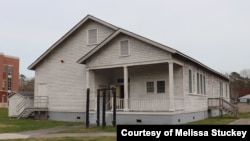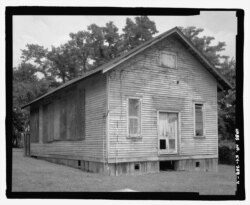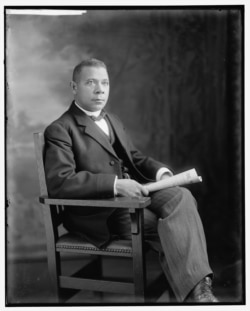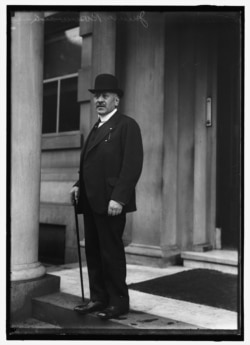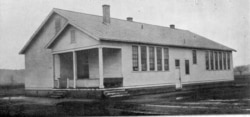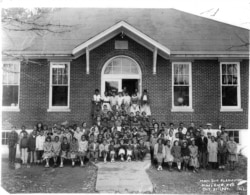The unassuming white wooden structure on the campus of Elizabeth City State University in North Carolina is a Rosenwald school — a physical reminder of an early 1900s social movement that transformed education for Black children in the American South.
“There was an overwhelming need for better public school facilities for African American children in the American South,” says Melissa Stuckey, professor of history at the school. “But there was also a general unwillingness of state and local governments to provide school facilities, to provide appropriate school structures, to pay teachers, to make reasonable academic years where the kids were getting more than a couple months of schooling in between cotton picking and other agricultural pursuits.”
Rosenwald schools changed all that. The state-of-the-art facilities were the brainchild of African American educator and author Booker T. Washington of the Tuskegee Institute and Sears CEO and philanthropist Julius Rosenwald.
About 5,000 Rosenwald schools were built between 1917 and 1932 in 15 southern states. By 1928, one-third of the South’s rural Black school children attended Rosenwald Schools.
Funding came from the Rosenwald fund, the local school district, and the local African American community that would be served by the school. Before the Rosenwald schools, African American children in the South attended classes in any number of places including churches, living rooms, barns, fields or front yards.
“African Americans, in this case, are really being double taxed,” says Stuckey. “They're paying for their local taxes that go to support schools that are not of high quality, and most of the money's actually going to the white children, and they're also [paying] into this local fund.”
What they got for their money were high quality structures with good ventilation and plenty of windows, the result of a requirement that the building be constructed to catch the most natural light over the course of the day. The schools became community centers with parents, students and community members helping in the maintenance and upkeep.
A 2009 study of how Rosenwald schools impacted Black achievement found significant improvement in “school attendance, literacy, years of schooling, cognitive test scores, and northern migration.”
“They lifted the floor of education and thereby lifted the ceiling of educational opportunities for African Americans in the South," says Stuckey. "It's one of those investments that...paid dividends over decades and decades.”
Elizabeth City State University was a teaching college back in 1921 when the Rosenwald school on campus was built. It was a place where the college's students could practice teaching. The university has received grants to preserve the schoolhouse, which will become a cultural center that houses the stories and artifacts of the students and teachers who attended and taught at Rosenwald schools.
“This is an archive that is underground. It’s an archive that exists in people's shoe boxes and photo albums, in their closets, [and] under their bed, and we need to gather that archive,” says Stuckey, who is overseeing the effort. “African American history is often a very fragmentary history because it has not been as carefully preserved as other people's histories.”
There is a sense of urgency to capture these living histories before it’s too late. The National Trust for Historic Preservation estimates that only about 10% of Rosenwald school buildings remain. The trust’s African American Cultural Heritage Action Fund recently issued a grant to help preserve a Rosenwald school in Kentucky.
“They exemplify a social movement in response to a crisis in Black education and the power, across racial lines, to partner and innovate,” says Brent Leggs, executive director of the African American Cultural Heritage Action Fund.
“So, I think the Rosenwald school story is fundamental to the moment that we're in and we can literally look at the blueprint that they created," Leggs says. "This collaborative strategy that required multiple investors to respond to this social crisis provides a lesson for how we might partner today to do better.”
While the Rosenwald schools closed many decades ago, preserving the structures allows future generations to continue to learn from them.
(Note: Main photo of Rosenwald Practice School at Elizabeth City State University courtesy of Melissa Stuckey.)




